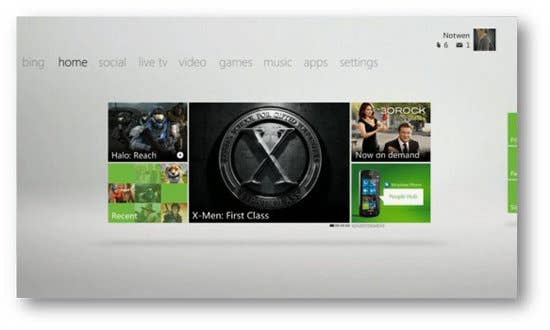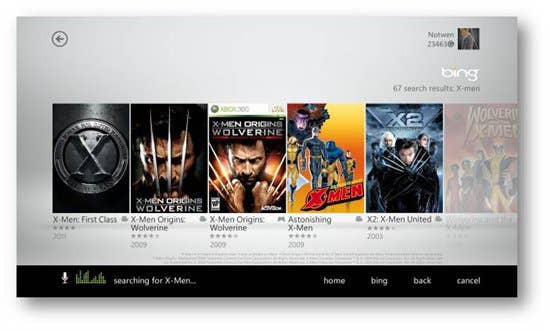Windows 8: Game-Changer?
Digital Foundry on Microsoft's plans for the new age of technological convergence
There are also somewhat more mundane practicalities to consider too. Xbox 360 uses a bespoke disc file system that purposely cannot be read on PC for anti-piracy reasons. While the 360 itself uses off-the-shelf DVD-ROM tech, the drives use custom firmware to read the discs, and it's hard to imagine Microsoft creating an all-purpose driver that would circumvent its own protection.
Despite the talk of a subscription, the basic business argument doesn't really make much sense either. Microsoft has lost (or invested, depending on how you want to look at it) billions of dollars in the Xbox 360, and now, as the console matures and the tech becomes very cheap to produce, is the time for the platform holder to claw back as much of that money as possible.
Make no mistake though: Xbox is such a powerful gaming brand that Microsoft would be insane not to integrate it in some shape or form into its next PC operating system, and the opportunities to make money there are mouth-watering. The only question is how bold the company will be in bringing its two brands together? Historically it seems to have done as much as possible to keep them apart.
In many ways, Windows 8 is more than just a new operating system. It is a reflection of the exciting times ahead as computer and video game technology evolves and diversifies.
In the here and now, we have the situation whereby gamertags can be shared between Xbox 360, PC and Windows Phone 7. There's nothing to stop you playing the same game through on Games for Windows Live and Xbox 360 and accrue double the amount of gamerscore. However, Microsoft must have taken notice of the Steamworks integration in Portal 2 on PlayStation 3. In the age of digital delivery, why not offer bundle deals on the same game running on Xbox and PC and offer cloud-save facilities to allow you to switch formats and play where you like?
There's also nothing from an architectural standpoint to stop cross-format online gameplay either, particularly with co-op games where differences in control schemes needn't impact the quality of the gameplay experience for any of the participants - as is the case with Portal 2. Microsoft has already experimented with this to some degree (Shadowrun, for instance) - but the question is how much the platform holder is willing to push the envelope, and to what extend the "walled garden" of Xbox Live could be pulled down to accommodate a cross-platform future.


With the pace that mobile gaming technology is moving at, we could even see triple-format support between Xbox, PC and smartphones/tablets. Even on current generation mobile technology we are beginning to see high-end engines running - we all know about Unreal Engine 3 being repurposed for portable gaming, but Capcom appears to have its MT Framework technology up and running on the next generation Kal-El quad core Tegra chip, with Lost Planet 2 already being demoed by NVIDIA.
Sure, it's not as pretty as the Xbox 360 and PS3 versions of the game, lacking many effects and possessing lower poly 3D models, but the fact that the engine is running at all is something of a miracle, and with Windows 8 likely to appear in 2012 or 2013, we can expect another major leap in mobile computational power by then. Even in the here and now, PlayStation Vita demonstrates spectacularly what is possible in a small, power-efficient, portable design.
Probably Microsoft's most tightly guarded secret right now is how closely the next generation Xbox will integrate with Windows 8. There are a few "no brainers" we can definitely factor into the equation. Firstly, the tile-based interface we've seen working in the Windows 8 prototype and indeed in Windows Phone 7 will almost certainly be utilised: we have already seen some semblance of that work at E3 where the brand new Kinect and voice-driven Xbox 360 dashboard was shown (note also the arrival of Bing).
Secondly, the recently revealed statistic that 40 per cent of Xbox 360 usage is for non-games functions such as streaming video and music will almost certainly factor into the make-up of the new machine. Microsoft is big on IPTV and media delivery, and it wouldn't surprise us at all if the current dual SKU approach with 360 is re-purposed with the next-gen equivalent of the Core/Arcade aimed at this market while the Premium model aggressively targets hardcore gamers. Microsoft will be looking to dominate this market by providing the ability to sync media between computers, consoles, smartphones and tablets - all unified by Windows 8.
In many ways, Windows 8 is more than just a new operating system. It is a reflection of the exciting times ahead as computer and video game technology evolves and diversifies, presenting a range of exciting new possibilities and ever-more powerful gaming technologies. Quite how much of a leap it represents remains unclear, but if - as reported - Microsoft is even considering retiring the Windows brand, we should expect a truly fundamental shift away from the basic expectations we have of an operating system and it will be fascinating to see how its competitors react.
Microsoft isn't proffering any details on when Windows 8 will be released, but we should get our next look at the OS during September's BUILD developer conference. Will it "change everything"...? Only time will tell.








